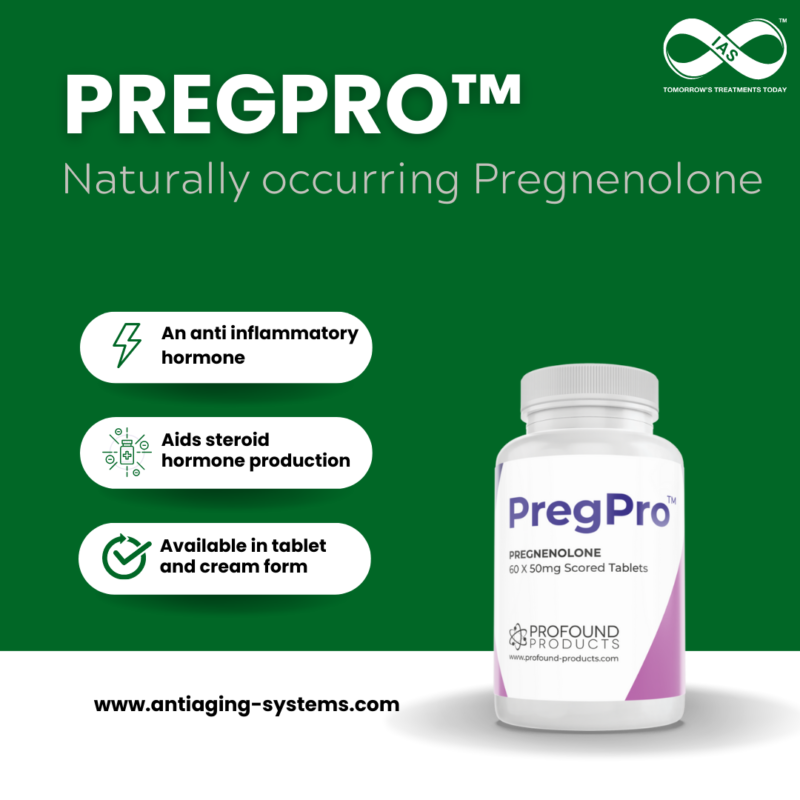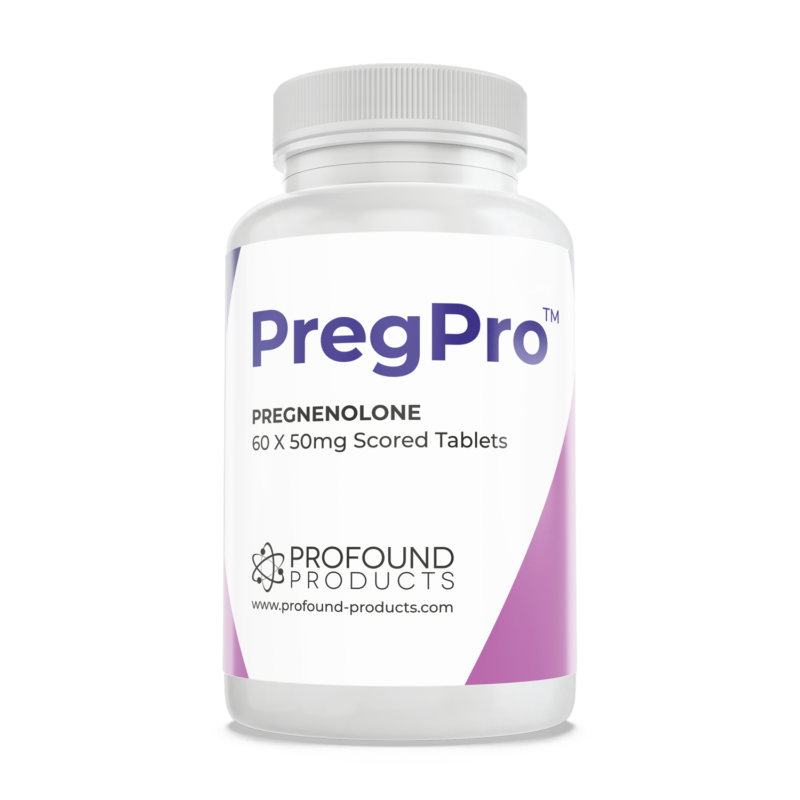Pregnenolone Supplementation

Some things in life are inevitable, and aging is one of them. As we grow older, our bodies naturally undergo various changes. We may experience mood changes or feel more tired than usual. Our natural hormone production may also slow down as we age.
While we can’t stop these things from happening, it helps us to understand them and take the necessary steps to support our bodies.
One hormone that may become depleted over time is pregnenolone. Pregnenolone helps regulate many bodily functions, from memory and learning to stress response. As its production declines with age, so does our body’s ability to perform these functions.
Fortunately, there are ways to help our pregnenolone levels stay balanced. Read on to learn more about pregnenolone and how it affects our bodies.
What is Pregnenolone?
Pregnenolone is a hormone produced by the adrenal gland, a small organ near the kidneys. It is known as a ‘steroid hormone’ because it is derived from cholesterol. Pregnenolone plays an important role in producing other steroid hormones, such as cortisol, estrogen, progesterone, and testosterone.
Essentially, without pregnenolone, our bodies struggle to produce the hormones necessary to regulate certain bodily functions. Without these hormones, we could experience various issues, from cognitive decline to mood swings and fatigue.
Why Has Pregnenolone Entered the Antiaging Arena?
As we age, our bodies naturally start to produce less pregnenolone. Considering how vital this steroid hormone is, it’s no wonder why its production decline has been linked to a range of age-related issues. For this reason, pregnenolone has become a popular topic in the aging and antiaging movement.
As pregnenolone levels decline, so too can its positive effects on bodily functions. Supplementing with pregnenolone can help restore these levels and potentially improve our overall health and well-being.
How Does Pregnenolone Benefit the Body?
Considering the sheer amount of hormones pregnenolone helps to produce, it should come as no surprise that its benefits are far-reaching.
Pregnenolone plays a role in everything from cognitive function to stress response and even energy production. In short, it’s an integral part of our body’s overall functioning.
Let’s take a look at some of the ways pregnenolone supports our bodies as we age.
- Memory and Learning: Neuroinflammatory conditions, such as Alzheimer’s, can develop over time, leading to memory loss and difficulty learning. Research shows those with Alzheimer’s tend to have lower pregnenolone levels when compared to someone without the disease[1]. Pregnenolone can help by decreasing inflammation in the brain and helping nerve cells communicate more effectively[2].
- Stress Response: Adrenal fatigue is a condition thought to be caused by chronic stress. Some symptoms of adrenal fatigue include physical fatigue, anxiety, and food cravings. Pregnenolone may help support the adrenal gland and enable it to respond better to stress – as well as increase energy levels.
- Low Moods: Pregnenolone can affect the production of other hormones, such as progesterone and testosterone; its decline can lead to a decrease in overall mood. Supplementing with pregnenolone can help restore these levels and potentially improve our moods over time[3].
- Pain Relief: As pregnenolone levels decline with age, so too does its ability to help reduce pain and inflammation. Pregnenolone can help reduce pain, making it a potential remedy for chronic pain issues – including lower back pain[4].
It’s clear this naturally occurring hormone is an essential part of our body’s functioning, and its decline can lead to a range of issues. We can combat the effects of pregnenolone decline with supplementation, allowing us to enjoy a better quality of life as we age.
However, you should always seek medical advice if you or a loved one have any health concerns.
Do Men and Women Need Different Pregnenolone Supplementation Dosages?
We are all unique, which means different people may require different dosages of pregnenolone supplementation. Some may benefit from lower dosages, while others will need higher ones depending on their individual needs.
There is no standard recommended dosage for either men or women, but 30-50mg daily tends to be the average.
Pregnenolone supplements come in a range of dosages, and it’s important to talk to a doctor about what’s right for you. Always read the label before taking any supplement, and consult a healthcare professional if you have any questions.
Conclusion
Pregnenolone plays an important role in our body as we age, helping to regulate many bodily functions and hormones.
Supplementing with pregnenolone can help support these functions and potentially lead to some antiaging benefits. If you’re interested in adding pregnenolone to your antiaging wellness routine, check out PregPro™, available on our website. Here you can find the right supplement for you and start your journey to better health!
Reference:
